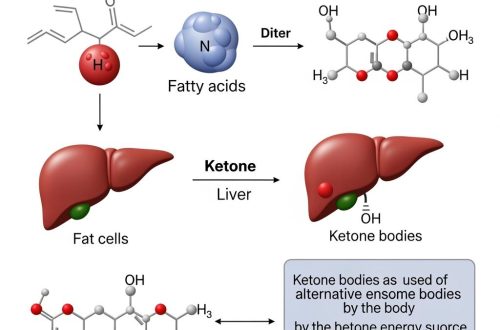The ketogenic diet has gained tremendous popularity over recent years as a weight loss strategy and metabolic health intervention. While many people adopt this high-fat, low-carbohydrate eating pattern for its well-documented benefits on weight management and blood sugar control, fewer are aware of its potential effects on skin health, particularly regarding skin tags. Additionally, the diet can produce several unexpected side effects that deserve careful consideration before embarking on this dietary journey.
Understanding Skin Tags and Their Connection to Metabolism
Skin tags, medically known as acrochordons, are small, benign growths that typically appear in areas where skin rubs against skin or clothing. These soft, flesh-colored protrusions are incredibly common, affecting up to 46% of the general population, with prevalence increasing with age. While generally harmless, many people find them cosmetically bothersome and seek ways to reduce their occurrence.
The development of skin tags has been strongly linked to insulin resistance and metabolic dysfunction. Research has shown that individuals with multiple skin tags often have higher fasting insulin levels and are more likely to have diabetes or prediabetes. This connection is particularly significant because insulin resistance promotes the overproduction of insulin-like growth factor-1 (IGF-1), which stimulates the proliferation of skin cells and can lead to the formation of these benign growths.
How the Ketogenic Diet Influences Skin Tag Development
The ketogenic diet fundamentally alters the body’s metabolic state by drastically reducing carbohydrate intake to typically less than 50 grams per day, forcing the body to burn fat for fuel instead of glucose. This metabolic shift produces ketones, which serve as an alternative energy source. This process, known as ketosis, has profound effects on insulin sensitivity and overall metabolic health.
By minimizing carbohydrate intake, the ketogenic diet significantly reduces insulin secretion and improves insulin sensitivity. Lower insulin levels mean less stimulation of IGF-1 receptors in the skin, potentially reducing the formation of new skin tags. Many individuals following a ketogenic diet report not only a halt in new skin tag development but also a gradual reduction in the size and number of existing tags.
The anti-inflammatory effects of ketosis may also contribute to improvements in skin tag appearance. Chronic inflammation plays a role in various skin conditions, and the ketogenic diet has been shown to reduce inflammatory markers throughout the body. This reduction in systemic inflammation may create a less favorable environment for skin tag development and potentially support the body’s natural processes for managing existing growths.

Unexpected Side Effects: The Good and the Challenging
While the potential benefits for skin tags are encouraging, the ketogenic diet can produce a range of unexpected side effects that vary significantly among individuals. Understanding these effects helps in making an informed decision about whether this dietary approach is suitable for your circumstances.
One of the most commonly reported positive side effects is improved mental clarity and sustained energy levels. Once the body adapts to using ketones for fuel, many people experience enhanced cognitive function, better focus, and more stable energy throughout the day without the typical post-meal crashes associated with high-carbohydrate diets. This neurological benefit often comes as a pleasant surprise to those who initially adopted the diet purely for weight loss.
However, the transition into ketosis can be challenging. The infamous “keto flu” affects many newcomers to the diet, causing symptoms including headaches, fatigue, irritability, difficulty concentrating, and nausea during the first few days to weeks. These symptoms result from the body’s adjustment to its new fuel source and the depletion of glycogen stores, which leads to increased water and electrolyte loss.
Perhaps one of the most socially awkward side effects is the development of “keto breath,” a distinctive fruity or metallic odor caused by the presence of acetone, one of the ketone bodies produced during ketosis. While this indicates that the body is successfully in ketosis, it can be embarrassing and may persist throughout the duration of the diet, though some people find it diminishes over time.
Digestive changes are another common experience. Some individuals report constipation due to reduced fiber intake and changes in gut bacteria composition. Conversely, others experience diarrhea, particularly when consuming large amounts of MCT oil or other fats to which their digestive system is unaccustomed. These gastrointestinal adjustments typically improve as the body adapts, but they can be uncomfortable during the transition period.
Long-term Considerations and Individual Variations
The long-term effects of the ketogenic diet on skin health extend beyond skin tags. Some people report improvements in acne, eczema, and overall skin texture, possibly due to reduced inflammation and more stable blood sugar levels. However, others experience increased skin dryness or temporary worsening of certain skin conditions during the adaptation phase.
Hormonal changes represent another important consideration, particularly for women. The ketogenic diet can affect reproductive hormones, potentially leading to irregular menstrual cycles or changes in fertility. Some women with polycystic ovary syndrome (PCOS) report significant improvements in their symptoms, including reduced hirsutism and better menstrual regularity, while others may experience disruptions to their normal hormonal patterns.
The diet’s impact on cholesterol levels can also be unexpected. While many people see improvements in their lipid profiles, including increased HDL cholesterol and reduced triglycerides, some individuals experience significant increases in LDL cholesterol. This response appears to be genetically influenced and highlights the importance of regular monitoring and individualized approaches to the diet.
Practical Recommendations and Precautions
For those considering the ketogenic diet specifically for its potential effects on skin tags or other health benefits, several practical considerations can help maximize benefits while minimizing unwanted side effects. Gradual transition into ketosis, rather than abrupt dietary changes, can help reduce the severity of adaptation symptoms. Ensuring adequate hydration and electrolyte intake, particularly sodium, potassium, and magnesium, is crucial for preventing many of the uncomfortable side effects associated with the initial transition.
Working with a healthcare provider is especially important for individuals with pre-existing medical conditions, those taking medications, or anyone experiencing concerning symptoms. Regular monitoring of blood markers, including glucose, ketone levels, and lipid profiles, can help ensure the diet is producing the desired metabolic effects without adverse consequences.
Conclusion
The ketogenic diet’s effect on skin tags appears promising, likely due to its powerful impact on insulin sensitivity and metabolic health. The reduction in insulin levels and improvement in metabolic markers may create an environment less conducive to skin tag formation while potentially supporting the resolution of existing tags. However, this dietary approach comes with a spectrum of unexpected side effects, ranging from enhanced mental clarity to digestive disturbances and hormonal changes.
Individual responses to the ketogenic diet vary dramatically, influenced by genetics, overall health status, and adherence to the dietary protocol. While many people successfully use this diet to improve various aspects of their health, including skin conditions, others may find the side effects outweigh the benefits. As with any significant dietary change, careful consideration of personal health goals, potential risks, and individual tolerance is essential for determining whether the ketogenic diet represents an appropriate intervention for addressing skin tags or other health concerns.





